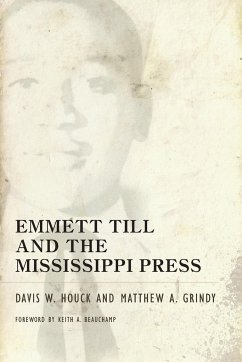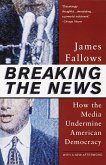An analysis of the media's reaction to the lynching of a young black man Employing never-before-used historical materials, the au-thors of Emmett Till and the Mississippi Press reveal how Mississippi journalists both expressed and shaped public opinion in the aftermath of the 1955 Emmett Till murder. Combing small-circulation weeklies as well as large-circulation dailies, Davis W. Houck and Matthew A. Grindy analyze the rhetoric at work as the state attempted to grapple with a brutal, small-town slaying. Initially coverage tended to be sympathetic to Till, but when the case became a clarion call for civil rights and racial justice in Mississippi, journa-lists reacted. Newspapers both reported on the Till investigation and editor-ialized on its protagonists. Within days the Till case transcended the specifics of a murder in the Delta. Coverage wrestled with such com-plex cultural matters as the role of the press, class, gender, and geography in the determination of guilt and innocence. Emmett Till and the Mississippi Press provides a careful examination of the courtroom testimony given in Sumner, Mississippi, and the trial's conclusion as reported by the state's newspapers. The book closes with an analysis of how Mississippi has attempted to come to terms with its racially troubled past by, in part, memorializing Emmett Till in and around the Delta. Davis W. Houck is associate professor of communication at Florida State University. He is the author of six books, including Rhetoric as Currency: Hoover, Roosevelt, and the Great Depression and FDR and Fear Itself: The First Inaugural Address. Matthew A. Grindy is a doctoral candidate of communication at Florida State University. Keith A. Beauchamp, a filmmaker based in New York City, is the director of The Untold Story of Emmett Louis Till.
Hinweis: Dieser Artikel kann nur an eine deutsche Lieferadresse ausgeliefert werden.
Hinweis: Dieser Artikel kann nur an eine deutsche Lieferadresse ausgeliefert werden.








